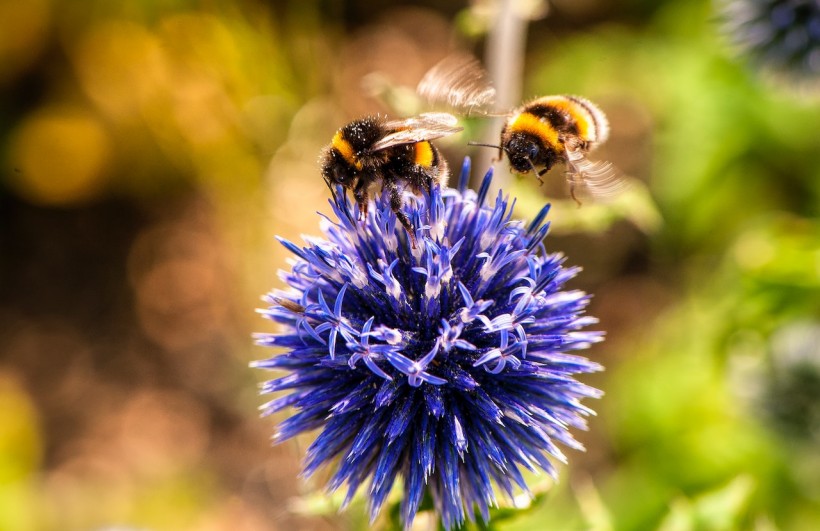For the past years, there has been a growing enthusiasm for beekeeping in urban communities with the promotion of the importance of bees in the ecosystem. However, this hobby that seems to gain popularity could threaten wildlife, especially solitary bees. This increased human impact will not only affect the species of solitary bees, but it could also alter the ecosystem's balance in the long run.
Experts warn against the intensification of beekeeping in urban areas without proper species population management. Other options are suggested for those who would like to help boost biodiversity.

Solitary bees play an important role as pollinators
The Negative Effects of Urban Beekeeping
A lot of factors contribute to the decline of the solitary bee population, including farming practices, the use of agricultural chemicals, and climate change. Among all these, habitat loss is found to be an important driver. Species-rich communities support biodiversity in urban areas, but without proper management, Western honeybees could pose a threat to solitary bees.
Out of more than 20 000 identified species of bees, beekeepers usually keep only one species of honeybees to domesticate. If not managed properly, these honeybees could be so numerous that they compete with solitary bees for food. Unlike Western honeybees, solitary bees do not produce honey. However, they play a very important role as pollinators in the ecosystem.
A study published by Ecography suggests that urban areas with a low richness of solitary bees and a high abundance of honey bees could lead to an ecosystem with lower linkage density. Another research study published by the journal PeerJ reveals the effect of the influx of Western honeybees in urban communities around the island of Montreal. While studying bee biology and behavior, Gail MacInnis and his team at Concordia academics discovered that the sites with abundant honeybees since 2013 also showed a reduced population of solitary bees.
READ ALSO: Honey Bees Endangered By Human Behavior
Alternative Ways to Promote Biodiversity
Food and Agriculture Organization (FAO) of the United Nations stresses the importance of the bee population as a major contributor to fighting against global hunger and malnutrition. Almost 90% of plant species depend on pollinators such as bees to reproduce. As pollinators, solitary bees are equally crucial as honeybees and deserve a spot in wildlife care.
Native to almost every country in the world, solitary bees can adapt to a range of climates and habitats. Although they are not famous for commercial use, solitary bees are easy to keep. Two popular bee species that naturally appear in the backyard are mason bees and leafcutter bees.
Simple boxes can be created using materials such as bamboo or reeds to serve as nesting sites in gardens or parks. Keeping plants that are native in an area can also help in providing food and shelter for the solitary bees. Adding new plant species can also encourage a wide range of species to host. It is also important to note that solitary bees are non-aggressive, and the destruction of their colonies can be avoided if there is no unnecessary fear towards them.
RELATED ARTICLE: Bumble Bees News: Endangered Species, One Of The Most Important Insects On Earth
Check out more news and information on Bees on Science Times.














